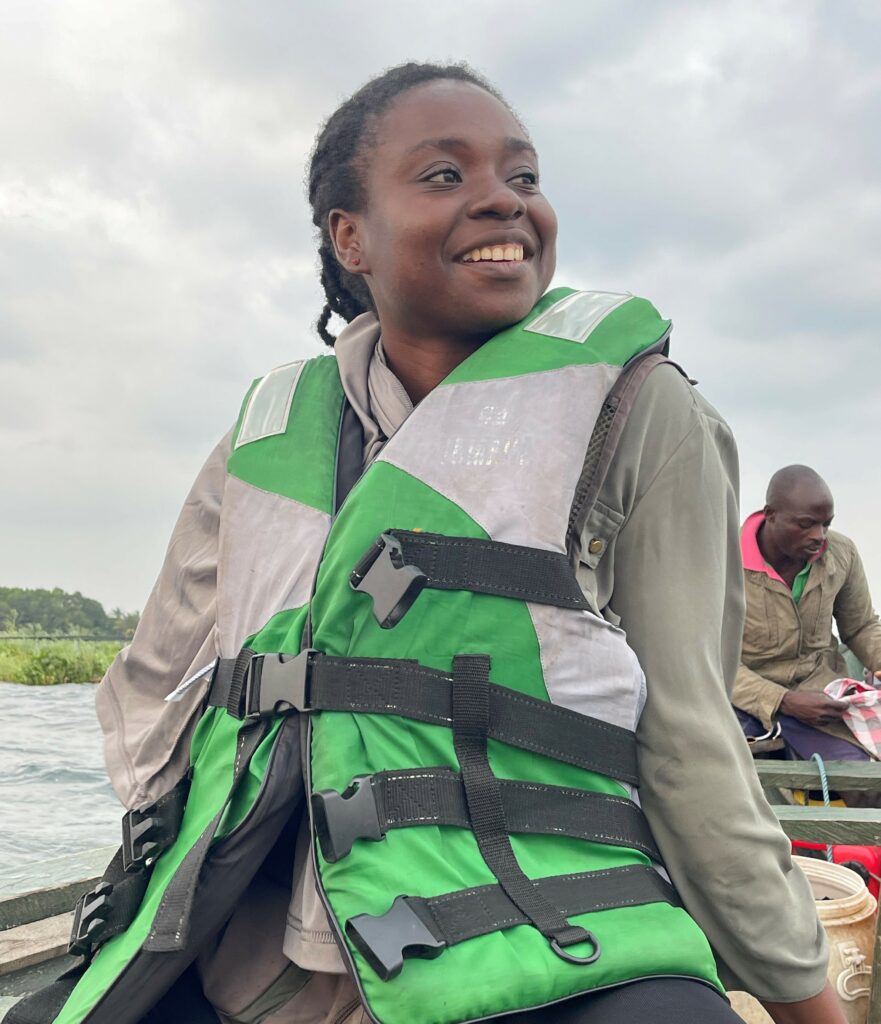
As aquaculture continues to grow in sub-Saharan Africa, so does ASA’s World Initiative for Soy in Human Health program’s work with women leaders, particularly when it comes to the adoption and sharing of scientific knowledge for sound aquaculture practices.
In Ghana, four dynamic women are trailblazers at one of the nation’s leading aquaculture companies. Founded by Evans Kwadzo Danso and his wife, Florence, Flosell Farms provides a daily example of women who are aquaculture pioneers. In a field once dominated by men, these ladies all welcome the chance to show how women in science play an integral role in the intersection of trade, development, and food security across the continent.
“We have learned a lot about fisheries and aquaculture through our work here at Flosell,” says Flosell’s continuous improvement manager, Irene Tay. “But it’s really important to note that we are now responsible for the growth of aquaculture in our country. We’ve gotten a lot of help from WISHH, so now we are even helping train other companies. It impresses a lot of people when they come to the farm and see women here.”
WISHH holds trainings ranging from business management and feed management to water quality and fish health. WISHH leverages USDA and soybean checkoff funds for these projects that boost demand for soy. Flosell hosts many of these trainings, which have attracted companies from West and East Africa. The companies come to learn from globally recognized technical experts how they can improve their businesses and expand production. As their aquaculture industry grows, the reliance on U.S. Soy for feed can expand as well.
From 1990 to 2018, worldwide aquaculture production rose by 527%, according to the Food and Agriculture Organization’s State of the World’s Fisheries and Aquaculture. Citing this report, SOFIA states that all eyes should be on Africa, where the rise in populations, human conflict, and natural disasters will challenge food systems the most.
The women who help lead Flosell are aware of these opportunities and obstacles. They are proud to be ahead of the curve.
“There is so much potential in aquaculture in Africa,” adds Flosell Farm Manager Nana Aba Aggrey. “A few years ago, farms were going out of business. Now, with the support of ASA/WISHH, we’ve staved off disease and farms are feeding families! That potential must be expanded upon, and we women are doing it!”
Flosell is committed to promotion of young leaders through its ranks. Women like Davida Obeng-Mensah serve as great examples of how women in science lead. Obeng-Mensah rounds out the team at Flosell and works in the hatchery department. She makes sure the fingerlings are healthy enough for the market. With the support of WISHH, Obeng-Mensah joined Flosell as an intern. She credits her internship for giving her real-world experience. WISHH leveraged funds from the United Soybean Board to support the program to great results. It has now been expanded into a larger cohort of interns, creating a new class of young leaders in aquaculture.
Sometimes being in the classroom means a lot of data,” says Obeng-Mensah. “Through the internship program I began to apply what I learned. That is such a treat.”
“For me,” continues Obeng-Mensah, “it shows that women can go into the sciences and truly make an impact. I am, perhaps, most proud of how we are fueling the future of Ghana with our work.”
WISHH is a program of the American Soybean Association and is funded in part by the United Soybean Board and state soybean board checkoff programs.
